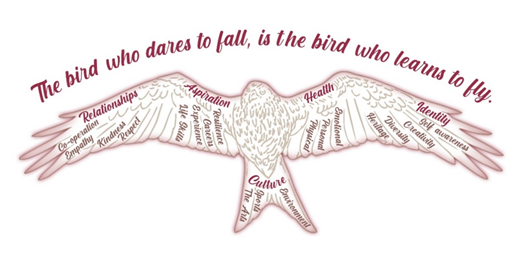French

Our French Lead is Gary Tompsett.
Intent
C: We develop culture by celebrating the similarities and difference of French lifestyle, equipping our pupils for travel in life.
H: We believe it is healthy to approach new learning with a positive mental attitude and not to be afraid to make mistakes
A: We nurture aspirations by providing a curriculum that encourages listening, speaking and writing through a variety of learning methods.
I: We develop identity by improving our confidence in real life situations and enabling pupil to believe in themselves.
R: We build relationships by encouraging conversational skills, developing team work and oral fluency.
Our curriculum is underpinned by our British values, equalities, school ethos and the need to build cultural capital for all our pupils.
National Curriculum Summary for Foreign Languages
The purpose of study
Learning a foreign language is a liberation from insularity and provides an opening to other cultures. Languages education should foster pupils’ curiosity and deepen their understanding of the world. Pupils should be able to express their ideas and thoughts in another language and to understand and respond to its speakers, both in speech and in writing. It should also provide opportunities for them to communicate for practical purposes and learn new ways of thinking.
Aims
The national curriculum for languages aims to ensure that all pupils:
• understand and respond to spoken and written language
• speak with increasing confidence, fluency and spontaneity, finding ways of communicating what they want to say, including through discussion and asking questions, and continually improving the accuracy of their pronunciation and intonation
• can write at varying length, for different purposes and audiences, using the variety of grammatical structures that they have learnt
• discover and develop an appreciation of a range of writing in the language studied.
Subject Content
The teaching should provide an appropriate balance of spoken and written language and should lay the foundations for further foreign language teaching at key stage 3. It should enable pupils to understand and communicate ideas, facts and feelings in speech and writing, focused on familiar and routine matters, using their knowledge of phonology, grammatical structures and vocabulary. The focus of study in modern languages will be on practical communication.
Pupils should be taught to:
• listen attentively to spoken language and show understanding by joining in and responding
• explore the patterns and sounds of language through songs and rhymes and link the spelling, sound and meaning of words
• engage in conversations; ask and answer questions; express opinions and respond to those of others; seek clarification and help
• speak in sentences, using familiar vocabulary, phrases and basic language structures
• develop accurate pronunciation and intonation so that others understand when they are reading aloud or using familiar words and phrases
• present ideas and information orally to a range of audiences
• read carefully and show understanding of words, phrases and simple writing
• appreciate stories, songs, poems and rhymes in the language
• broaden their vocabulary and develop their ability to understand new words that are introduced into familiar written material, including through using a dictionary
• write phrases from memory, and adapt these to create new sentences, to express ideas clearly
• describe people, places, things and actions orally and in writing Languages
• understand basic grammar appropriate to the language being studied, including (where relevant): feminine, masculine and neuter forms and the conjugation of high-frequency verbs; key features and patterns of the language; how to apply these, for instance, to build sentences; and how these differ
from or are similar to English.
Our Unit of Work
At Rushden Primary Academy we teach French using the Kapow Primary unit of Lessons. Kapow Primary was created from a genuine need for affordable and accessible support for teachers in the foundation, non-core subjects. Its aim is to help schools and teachers offer a broad and balanced curriculum that stretches and inspires children and supports the development of their knowledge and skills. Kapow is used daily in over 5000 primary schools.
Kapow Primary’s French scheme of work aims to instil a love of language learning and an awareness of other cultures. Kapow Primary’s French scheme of work supports pupils to meet the national curriculum end of Key stage 2 attainment targets (there are no Key stage 1 attainment targets for Languages).
The Kapow French scheme of work is designed with six strands that run throughout.
These are:
• Speaking and pronunciation
• Listening
• Reading and writing
• Grammar
• Intercultural understanding
• Language detective skills .
Our National curriculum mapping shows which of our units cover each of the National curriculum attainment targets as well as each of the strands. Our Progression of skills and knowledge shows the skills and knowledge that are taught within each year group and how these skills develop to ensure that attainment targets are securely met by the end of Key Stage 2.
The impact of Kapow Primary’s scheme can be monitored continuously through both formative and summative assessment. Each lesson includes guidance to support teachers in assessing pupils against the learning objectives. After the implementation of Kapow Primary French, pupils should leave school equipped with a range of language-learning skills to enable them to study French, or any other language, with confidence at Key Stage 3.
With a heightened emphasis on catching up on core subjects as rapidly as possible after the pandemic and with the inevitable impact that had on non-core subjects teaching time, a decision was taken at the start of the academic year to begin all four year groups in key stage 2 (French isn’t taught at Key Stage 1) at the same point. After the year groups rediscovered their confidence, we moved to more year group-specific units in the second half of the year
